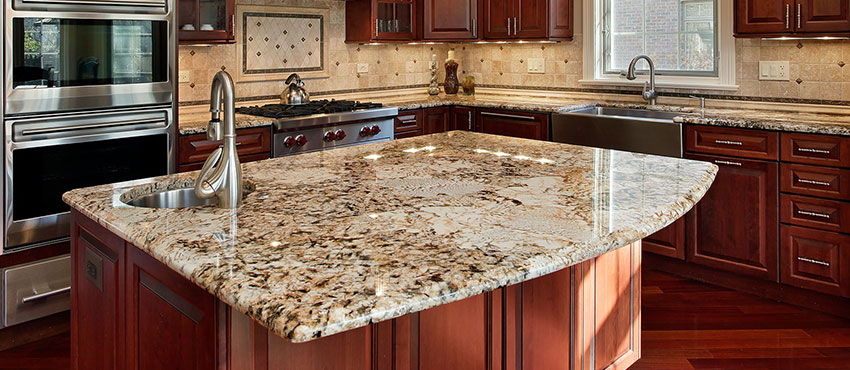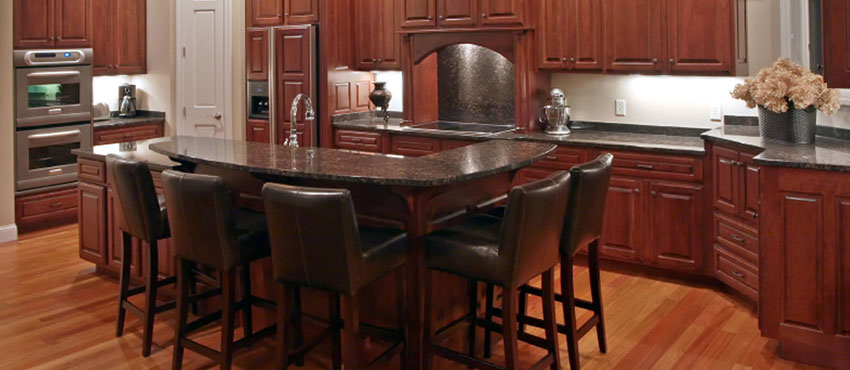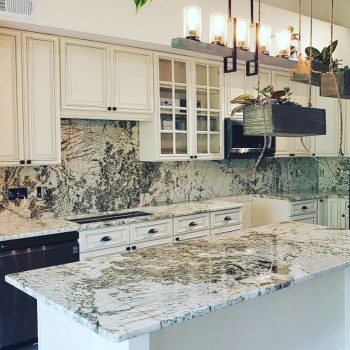Jan
Can Water Stain Marble?
- 2021
- bruce
Can water stain marble? Yes, it can, but in rare cases when the city water or well water is acidic. Marble is made of calcium carbonate and it reacts with the acidic water leading to transparent or chalky dull spots.
You should note that pure water will not stain or damage marble countertops.
While water deposits can stain your marble, it happens in extremely rare cases. In 99% of the cases, the water stains are as a result of the stone coming into contact with acidic things such as fruit, coffee, juice, sauces, dressings, alcoholic drinks, and many others.
While the “water stains” seem like they are as a result of water penetrating to the inner layers of the stone, they aren’t. Instead, they are a result of etching or corrosion of the countertop surface due to the reaction of the countertop with the acidic substances.
Since the etch marks look similar to water deposits, many homeowners term them as water spots.
How to remove water stains from marble
To be clear, when we are talking about removing the water spots, we are talking about removing the etch marks from the countertops as they are the causes of 99% of “water stains.”
To remove the etches you should begin with wiping the marble surfaces clean then cover the stain with enough polishing powder then spray water over the polishing powder 2-3 times with a spray bottle to dampen the powder.
When in place, dampen a towel and use it to scrub the polishing powder over the etch mark for 20 seconds to 1 minute. If doing it right, the etch mark should begin to rub away.
When rubbing your marble with the polishing powder, don’t apply a lot of pressure to avoid scratching the marble surface.
A great way to go about it is to rub the countertops quickly at a high frequency until the etch mark is gone. Only apply pressure on the countertop if the mark fails to go away after 20 seconds.
After removing the etch mark, spray the marble cleaner over the surface then clean the marble surface with a clean towel. You should then dry the surface completely once clean and free of extra polishing powder.
In most cases, the etch marks will go away from doing this once, but if you do it and the stain doesn’t go away, repeat the process the second time. If this still doesn’t work, contact a marble professional to help you out.
Can you prevent your countertops from etching?
Yes, you can, but you can’t prevent the etching 100%. The best you can do is maybe 90% prevention and you do this by applying a chemical coating on the countertop.
If you have a high use area such as a hotel or bar, the coatings are a great idea but you are discouraged from using the coating on your home countertops. This is because the coating can:
- Change the look of the stone, making it look plastic
- The countertops may require additional special maintenance
- The coating can wear easily than the stone, giving your surfaces a cheap look
- The coating can sometimes be difficult to apply correctly or require expensive professional application.
For your home, avoid the coating and take good care of your marble surfaces. This calls for you to:
- Seal the countertops with a high-quality sealer at least once every year
- Clean the surfaces with non-acidic cleaners. The best materials to use are sponge or soft cloth with hot water and a specially formulated marble cleaner.
- Avoid soap as a regular cleaner as it has been shown to lead to a dull film covering the surface when you use it for a long time.
- When cutting or placing items on the countertops, use cutting boards, trivets, and coasters. These items will protect the surfaces against scratching and direct contact with juices that can etch the surfaces.
Trivets prevent your countertops from coming into contact with the hot pans, hence prevent scratches and possible scorching.
Since marble is softer, it often requires more care than other tougher stones such as granite, so if you don’t like giving the countertops a lot of attention, ask your local granite countertop installers to install the countertops in your home.




